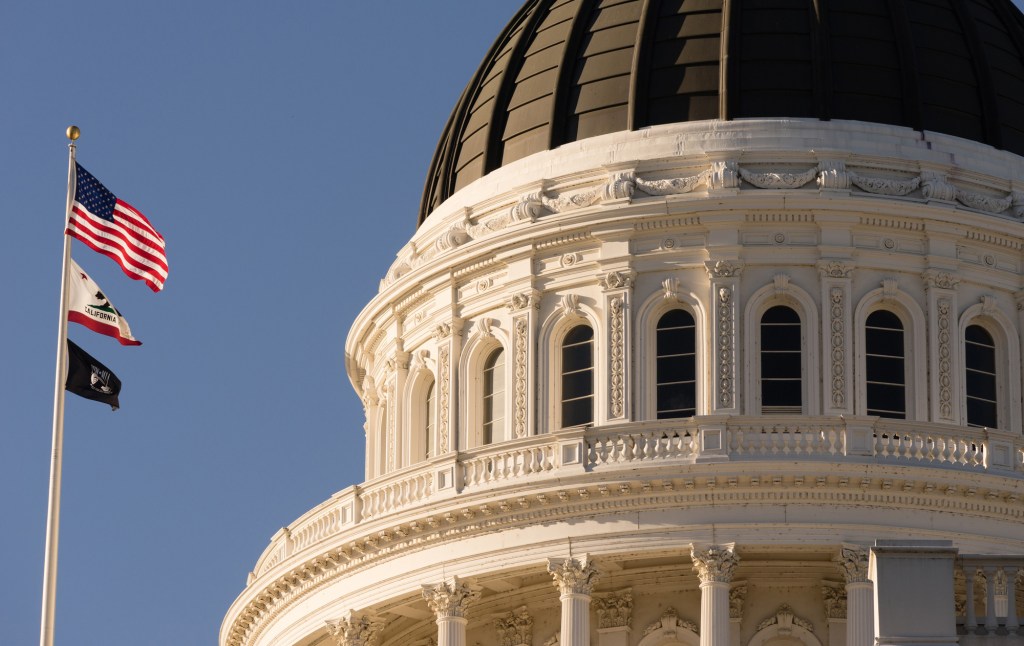
In 2018, a light was finally being shined on police misconduct records after decades of secrecy. Sen. Nancy Skinner’s Senate Bill 1421 was landmark legislation that led to in-depth reporting, better informed communities, and a public database of misconduct created by UC Berkeley & Stanford University.
Now, days before the end of the California state Legislature goes into recess, Assemblymember Blanca Pacheco has amended Assembly Bill 1178 to completely undermine access to misconduct records. This – at a time when law enforcement is wearing ski masks and covering their badge numbers. We need more transparency, not less.
AB 1178 has been amended at the last minute to remove narrowing language, previously agreed to, from the bill. These amendments were taken on August 29, when hundreds of bills came off the suspense file with amendments. Was the author hoping that no one would notice?
The Legislature is taking action to address law enforcement hiding badges and faces. AB 1178 is the antithesis of these efforts. The Legislature should be outraged at this legislation that would further undermine law enforcement accountability. Especially, when done in such a manner that goes back on agreements made with transparency, criminal justice stakeholders and the Assembly Public Safety Committee.
This bill is sponsored by law enforcement and pries into code sections that have uncovered police misconduct to undermine access. The stated intent of the bill is to protect “undercover officers.”
But if that is the case, why did the author amend the bill to remove “currently operating undercover” from the bill?
The purpose is clear – to undermine transparency.
Now the bill applies to any officer whose “duties demand anonymity.” This nebulous term would only add to the games some departments play to avoid disclosing records. Officers who have been found to have discharged their firearms, have killed someone, committee sexual assault or causing great bodily injury. These are not frivolous accusations. They are sustained findings.
Further, this legislation is unnecessary if it is truly intended to apply to undercover officers. SB 1421 took a flexible approach to officer safety, allowing redaction of any document “[w]here there is a specific, articulable, and particularized reason to believe that disclosure of the record would pose a significant danger to the physical safety of the peace officer…” under Penal Code § 832.7(b)(6)(D).
Often law enforcement will say that it’s just a few “bad apples” ruining the bunch. If that is the case, stop protecting those officers and help restore the public’s faith in law enforcement.
This exact question was answered by Senator Skinner with her follow-up bill, Senate Bill 16, which eliminated loopholes that were being exploited by law enforcement, such as officers leaving departments or retiring to avoid the conclusion of an investigation or having an attorney conduct the investigation to claim any finding is privileged.
The city of Los Angeles recently argued that “plainclothes” officers were somehow “undercover.” Without clear definitions and standards, the city argued those plain clothes officers demand anonymity even though the officers were simultaneously making TV appearances, putting their acting resumes on IMDB and job histories on LinkedIn, and posting team photos openly on social media.
The Legislature has a process for allowing amendments to be taken which constitutes a public commitment on what the legislation will be moving forward.
Assemblymember Pacheco has gone back on the public commitment to limit the bill to undercover officers and this behavior must not be allowed.
Legislators must reject this harmful legislation and last-minute games to prevent the Public’s Right to Know.
Charles Ford Champion II is president and CEO of the California News Publishers Association.



